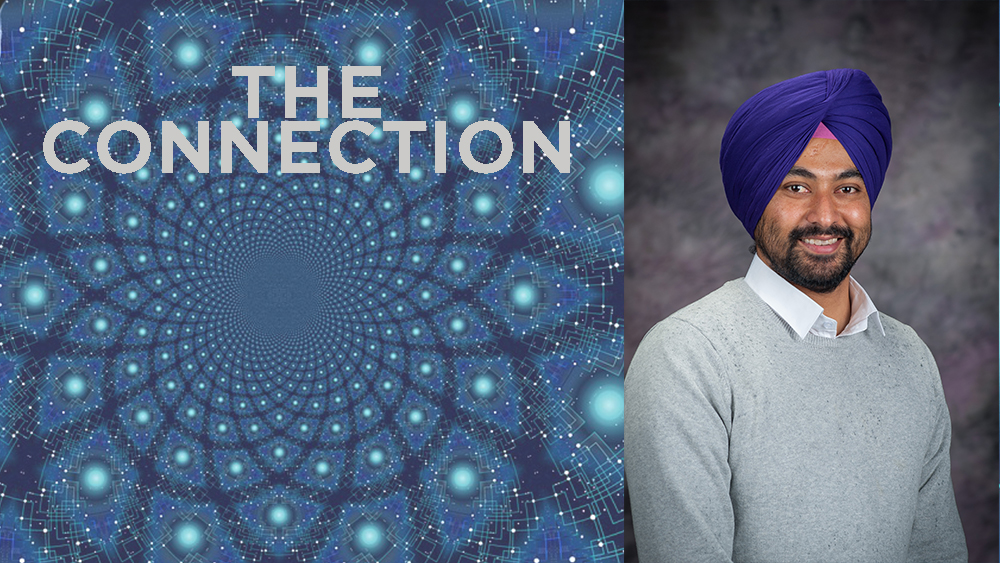
When you think of technology and fruit, you may think of Apple, the corporation, not the edible variety. However, for Dr. Manreet Singh Bhullar, Research Assistant Professor at Kansas State University (K-State) Olathe, technology is at the core of tackling major issues regarding the microbial safety and production of fresh produce. With successful implementation and access to technology solutions, what is currently a smaller industry in Kansas could become a bigger contributor to the regional fresh produce capabilities.
Bhullar’s primary focus at K-State is researching the microbial safety of fresh produce, but his expertise is invaluable in multiple projects supporting the benefit of technology for small-scale growers in the region. “My goal is to bring technologies to these farms economically to enhance their food safety, have better returns on their crops, and ensure compliance with the Food and Drug Administration (FDA). The result is a reach into larger markets, to sell more product, and ensure their operation stays in business long term,” Bhullar said.
Currently, Bhullar is involved in four primary projects at K-State. The first preceded his arrival at the university in 2019 and provides free water testing to fresh produce growers in Kansas and Missouri. If something harmful is detected, the project also assists the grower in a plan to reach compliance and provides technical assistance to those who need help improving water quality.
The second project is also related to water and its usage in production and sequences well from the first. “Ultraviolet (UVC) light emits photons, and that element at a particular wavelength (254nm) is germicidal or lethal to human pathogens, including bacteria,” Bhullar said. This technology can, for most surface water used by these producers, to inactivate harmful microorganisms before it is used to support the grower’s crops. Secondarily, Bhullar’s project will provide an economic analysis, including the initial investment needed, the annual maintenance cost of the UV treatment equipment, and the value of this best food safety compliance practice. The final element of this project is to compile data and develop an algorithm that takes the specifics from their farm and generates a recommendation on the viability of the treatment system for their operation instantly.
The third project also utilizes UVC light technology and can potentially impact the issue of produce and food waste. “We have to fix this problem in parallel with increasing food production, 30-40% of produce is lost due to limited shelf life or poor handling,” Bhullar said. “We believe that UVC technology can help us increase the shelf life and reduce handling issues.” In collaboration with peers at K-State, Bhullar is producing basic research to support his hypothesis and determine the impact on the food.
The fourth is perhaps the biggest removal from modern application in which his research uses laser etch printing on produce, replacing the plastic and glue labels that mark barcodes and traceability for FDA compliance. “Both plastic and adhesive are environmental contaminants and have proven to be unreliable in batch tracking for compliance, they have a tendency to fall off,” Bhullar said. The technology would etch the “label” directly on the produce. His team is currently uncovering all effects on shelf life, bacteria exposure, and consumer impact.
Bhullar grew up in an agricultural community in India, where his grandfather still operates a small family acreage. Despite pressure from friends and family to expand his education beyond agriculture, he received his undergraduate degree while still in India and expanded into food technology in his graduate studies in the United States. “Everybody back home is surprised by what I have been able to do with this profession. I always figured I would take this experience and return to India, but the impact and contribution I can make here is so much greater,” Bhullar said.
Growing up in India provided Bhullar with a unique perspective on diversity, equity, and inclusion. “India is a country that has hundreds of religions, faiths, and a caste system. I was taught early that everybody is equal and irrespective of whatever faith they follow, the color of their skin, none of that matters. We are all human,” Bhullar said. Regarding diversity in STEM, Bhullar received a valuable lesson when encouraging younger students in the field. “My major professor explained to me that none of us know what experiences or traumas a student had in their past; what mattered was to teach, educate, and train them equally and with patience. We need to reach out to kids at the high school level and encourage them to get to the higher levels of research and education,” Bhullar said.
Our world has a myriad of challenges in the field of food production and food safety. For researchers like Bhullar, technology provides an opportunity to make huge strides towards improvements quickly around the country, but he also doesn’t lose sight of leveling the competitive playing field for regional produce farmers to increase their impact.